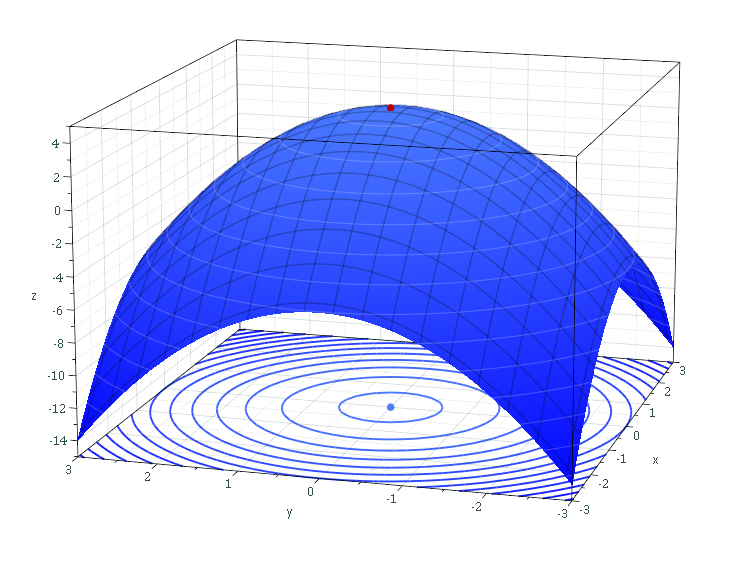|
Economists
An economist is a professional and practitioner in the social science discipline of economics. The individual may also study, develop, and apply theories and concepts from economics and write about economic policy. Within this field there are many sub-fields, ranging from the broad philosophical theories to the focused study of minutiae within specific markets, macroeconomic analysis, microeconomic analysis or financial statement analysis, involving analytical methods and tools such as econometrics, statistics, economics computational models, financial economics, mathematical finance and mathematical economics. Professions Economists work in many fields including academia, government and in the private sector, where they may also "study data and statistics in order to spot trends in economic activity, economic confidence levels, and consumer attitudes. They assess this information using advanced methods in statistical analysis, mathematics, computer programming ndthey make ... [...More Info...] [...Related Items...] OR: [Wikipedia] [Google] [Baidu] |
Macroeconomics
Macroeconomics (from the Greek prefix ''makro-'' meaning "large" + ''economics'') is a branch of economics dealing with performance, structure, behavior, and decision-making of an economy as a whole. For example, using interest rates, taxes, and government spending to regulate an economy's growth and stability. This includes regional, national, and global economies. According to a 2018 assessment by economists Emi Nakamura and Jón Steinsson, economic "evidence regarding the consequences of different macroeconomic policies is still highly imperfect and open to serious criticism." Macroeconomists study topics such as GDP (Gross Domestic Product), unemployment (including unemployment rates), national income, price indices, output, consumption, inflation, saving, investment, energy, international trade, and international finance. Macroeconomics and microeconomics are the two most general fields in economics. The United Nations Sustainable Development Goal 17 has a ta ... [...More Info...] [...Related Items...] OR: [Wikipedia] [Google] [Baidu] |
Mathematical Economics
Mathematical economics is the application of mathematical methods to represent theories and analyze problems in economics. Often, these applied methods are beyond simple geometry, and may include differential and integral calculus, difference and differential equations, matrix algebra, mathematical programming, or other computational methods. Proponents of this approach claim that it allows the formulation of theoretical relationships with rigor, generality, and simplicity. Mathematics allows economists to form meaningful, testable propositions about wide-ranging and complex subjects which could less easily be expressed informally. Further, the language of mathematics allows economists to make specific, positive claims about controversial or contentious subjects that would be impossible without mathematics. Much of economic theory is currently presented in terms of mathematical economic models, a set of stylized and simplified mathematical relationships asserted to clarif ... [...More Info...] [...Related Items...] OR: [Wikipedia] [Google] [Baidu] |
Economics
Economics () is the social science that studies the production, distribution, and consumption of goods and services. Economics focuses on the behaviour and interactions of economic agents and how economies work. Microeconomics analyzes what's viewed as basic elements in the economy, including individual agents and markets, their interactions, and the outcomes of interactions. Individual agents may include, for example, households, firms, buyers, and sellers. Macroeconomics analyzes the economy as a system where production, consumption, saving, and investment interact, and factors affecting it: employment of the resources of labour, capital, and land, currency inflation, economic growth, and public policies that have impact on these elements. Other broad distinctions within economics include those between positive economics, describing "what is", and normative economics, advocating "what ought to be"; between economic theory and applied economics; between ratio ... [...More Info...] [...Related Items...] OR: [Wikipedia] [Google] [Baidu] |
Microeconomics
Microeconomics is a branch of mainstream economics that studies the behavior of individuals and firms in making decisions regarding the allocation of scarce resources and the interactions among these individuals and firms. Microeconomics focuses on the study of individual markets, sectors, or industries as opposed to the national economy as whole, which is studied in macroeconomics. One goal of microeconomics is to analyze the market mechanisms that establish relative prices among goods and services and allocate limited resources among alternative uses. Microeconomics shows conditions under which free markets lead to desirable allocations. It also analyzes market failure, where markets fail to produce efficient results. While microeconomics focuses on firms and individuals, macroeconomics focuses on the sum total of economic activity, dealing with the issues of growth, inflation, and unemployment and with national policies relating to these issues. Microeconomics also d ... [...More Info...] [...Related Items...] OR: [Wikipedia] [Google] [Baidu] |
Computational Economics
Computational Economics is an interdisciplinary research discipline that involves computer science, economics, and management science.''Computational Economics''."About This Journal"an"Aims and Scope" This subject encompasses computational modeling of economic systems. Some of these areas are unique, while others established areas of economics by allowing robust data analytics and solutions of problems that would be arduous to research without computers and associated numerical methods.• Hans M. Amman, David A. Kendrick, and John Rust, ed., 1996. ''Handbook of Computational Economics'', v. 1, ElsevierDescription & chapter-previelinks. • Kenneth L. Judd, 1998. ''Numerical Methods in Economics'', MIT Press. Links tdescription anchapter previews Computational methods have been applied in various fields of economics research, including but not limiting to: Econometrics: Non-parametric approaches, Semi-parametric approaches, and Machine Learning. Dynamic ... [...More Info...] [...Related Items...] OR: [Wikipedia] [Google] [Baidu] |
Financial Economics
Financial economics, also known as finance, is the branch of economics characterized by a "concentration on monetary activities", in which "money of one type or another is likely to appear on ''both sides'' of a trade". William F. Sharpe"Financial Economics", in Its concern is thus the interrelation of financial variables, such as share prices, interest rates and exchange rates, as opposed to those concerning the real economy. It has two main areas of focus:Merton H. Miller, (1999). The History of Finance: An Eyewitness Account, ''Journal of Portfolio Management''. Summer 1999. asset pricing, commonly known as "Investments", and corporate finance; the first being the perspective of providers of capital, i.e. investors, and the second of users of capital. It thus provides the theoretical underpinning for much of finance. The subject is concerned with "the allocation and deployment of economic resources, both spatially and across time, in an uncertain environment".See Fama ... [...More Info...] [...Related Items...] OR: [Wikipedia] [Google] [Baidu] |
Social Sciences
Social science is one of the branches of science, devoted to the study of society, societies and the Social relation, relationships among individuals within those societies. The term was formerly used to refer to the field of sociology, the original "science of society", established in the 19th century. In addition to sociology, it now encompasses a wide array of academic disciplines, including anthropology, archaeology, economics, human geography, linguistics, management science, communication science and political science. Positivism, Positivist social scientists use methods resembling those of the natural sciences as tools for understanding society, and so define science in its stricter Modern science, modern sense. Antipositivism, Interpretivist social scientists, by contrast, may use social critique or symbolic interpretation rather than constructing empirically falsifiable theories, and thus treat science in its broader sense. In modern academic practice, researchers are ... [...More Info...] [...Related Items...] OR: [Wikipedia] [Google] [Baidu] |
Management
Management (or managing) is the administration of an organization, whether it is a business, a nonprofit organization, or a government body. It is the art and science of managing resources of the business. Management includes the activities of setting the strategy of an organization and coordinating the efforts of its employees (or of volunteers) to accomplish its objectives through the application of available resources, such as financial, natural, technological, and human resources. "Run the business" and "Change the business" are two concepts that are used in management to differentiate between the continued delivery of goods or services and adapting of goods or services to meet the changing needs of customers - see trend. The term "management" may also refer to those people who manage an organization—managers. Some people study management at colleges or universities; major degrees in management includes the Bachelor of Commerce (B.Com.), Bachelor of Business ... [...More Info...] [...Related Items...] OR: [Wikipedia] [Google] [Baidu] |
Lobbying
In politics, lobbying, persuasion or interest representation is the act of lawfully attempting to influence the actions, policies, or decisions of government officials, most often legislators or members of regulatory agencies. Lobbying, which usually involves direct, face-to-face contact, is done by many types of people, associations and organized groups, including individuals in the private sector, corporations, fellow legislators or government officials, or advocacy groups (interest groups). Lobbyists may be among a legislator's constituencies, meaning a voter or bloc of voters within their electoral district; they may engage in lobbying as a business. Professional lobbyists are people whose business is trying to influence legislation, regulation, or other government decisions, actions, or policies on behalf of a group or individual who hires them. Individuals and nonprofit organizations can also lobby as an act of volunteering or as a small part of their normal job. Gov ... [...More Info...] [...Related Items...] OR: [Wikipedia] [Google] [Baidu] |
University Of Illinois Urbana-Champaign
The University of Illinois Urbana-Champaign (U of I, Illinois, University of Illinois, or UIUC) is a public land-grant research university in Illinois in the twin cities of Champaign and Urbana. It is the flagship institution of the University of Illinois system and was founded in 1867. Enrolling over 56,000 undergraduate and graduate students, the University of Illinois is one of the largest public universities by enrollment in the country. The University of Illinois Urbana-Champaign is a member of the Association of American Universities and is classified among "R1: Doctoral Universities – Very high research activity". In fiscal year 2019, research expenditures at Illinois totaled $652 million. The campus library system possesses the second-largest university library in the United States by holdings after Harvard University. The university also hosts the National Center for Supercomputing Applications and is home to the fastest supercomputer on a university campus. Th ... [...More Info...] [...Related Items...] OR: [Wikipedia] [Google] [Baidu] |
Investopedia
Investopedia is a financial media website headquartered in New York City. Founded in 1999, Investopedia provides investment dictionaries, advice, reviews, ratings, and comparisons of financial products such as securities accounts. Investopedia has more than 32,000 articles and reaches 20 million unique monthly viewers and posts paid advertisements as investing information. It is part of the Dotdash Meredith family of brands owned by IAC. Investopedia offers educational technology into day trading, asset management, foreign exchange markets, as well as financial educational courses. It also hosts a stock market simulator. Self-paced, online courses from expert instructors are available on Investopedia Academy. History Founding and early history Investopedia was founded in 1999 by Cory Wagner and Cory Janssen in Edmonton, Alberta. At the time, Janssen was a business student at the University of Alberta. Wagner focused on business development and research and development, wh ... [...More Info...] [...Related Items...] OR: [Wikipedia] [Google] [Baidu] |
Commerce
Commerce is the large-scale organized system of activities, functions, procedures and institutions directly and indirectly related to the exchange (buying and selling) of goods and services among two or more parties within local, regional, national or international economies. More specifically, commerce is not business, but rather the part of business which facilitates the movement and distribution of finished or unfinished but valuable goods and services from the producers to the end consumers on a large scale, as opposed to the sourcing of raw materials and manufacturing of those goods. Commerce is subtly different from trade as well, which is the final transaction, exchange or transfer of finished goods and services between a seller and an end consumer. Commerce not only includes trade as defined above, but also a series of transactions that happen between the producer and the seller with the help of the auxiliary services and means which facilitate such trade. These auxilia ... [...More Info...] [...Related Items...] OR: [Wikipedia] [Google] [Baidu] |






